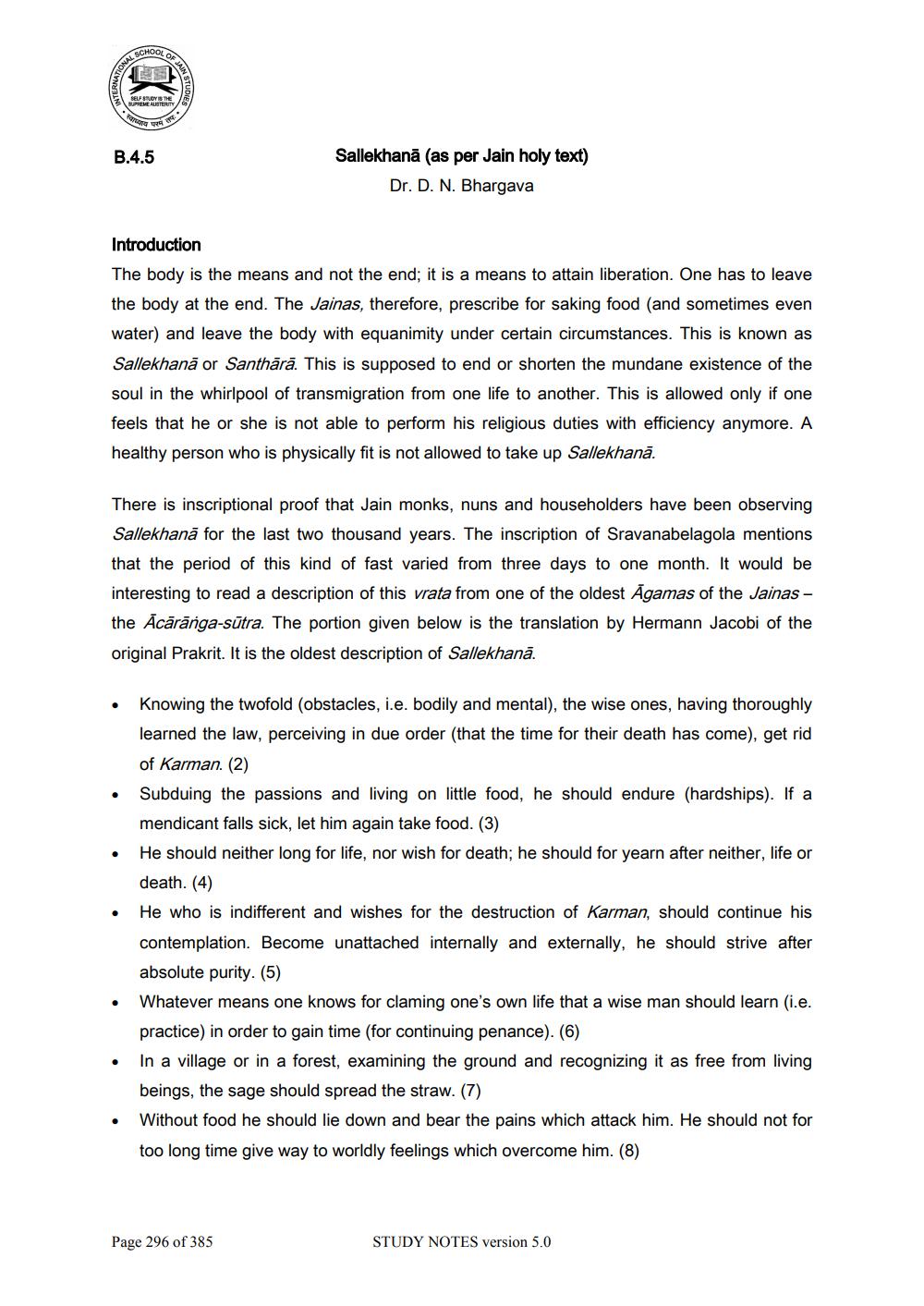________________
B.4.5
Sallekhanā (as per Jain holy text)
Dr. D. N. Bhargava
Introduction The body is the means and not the end; it is a means to attain liberation. One has to leave the body at the end. The Jainas, therefore, prescribe for saking food (and sometimes even water) and leave the body with equanimity under certain circumstances. This is known as Sallekhanā or Santhārā. This is supposed to end or shorten the mundane existence of the soul in the whirlpool of transmigration from one life to another. This is allowed only if one feels that he or she is not able to perform his religious duties with efficiency anymore. A healthy person who is physically fit is not allowed to take up Sallekhanā.
There is inscriptional proof that Jain monks, nuns and householders have been observing Sallekhanā for the last two thousand years. The inscription of Sravanabelagola mentions that the period of this kind of fast varied from three days to one month. It would be interesting to read a description of this vrata from one of the oldest Āgamas of the Jainas - the Ācārānga-sūtra. The portion given below is the translation by Hermann Jacobi of the original Prakrit. It is the oldest description of Sallekhanā.
• Knowing the twofold (obstacles, i.e. bodily and mental), the wise ones, having thoroughly
learned the law, perceiving in due order (that the time for their death has come), get rid of Karman. (2) Subduing the passions and living on little food, he should endure (hardships). If a mendicant falls sick, let him again take food. (3) He should neither long for life, nor wish for death; he should for yearn after neither, life or death. (4) He who is indifferent and wishes for the destruction of Karman, should continue his contemplation. Become unattached internally and externally, he should strive after absolute purity. (5) Whatever means one knows for claming one's own life that a wise man should learn i.e. practice) in order to gain time (for continuing penance). (6) In a village or in a forest, examining the ground and recognizing it as free from living beings, the sage should spread the straw. (7) Without food he should lie down and bear the pains which attack him. He should not for too long time give way to worldly feelings which overcome him. (8)
Page 296 of 385
STUDY NOTES version 5.0




